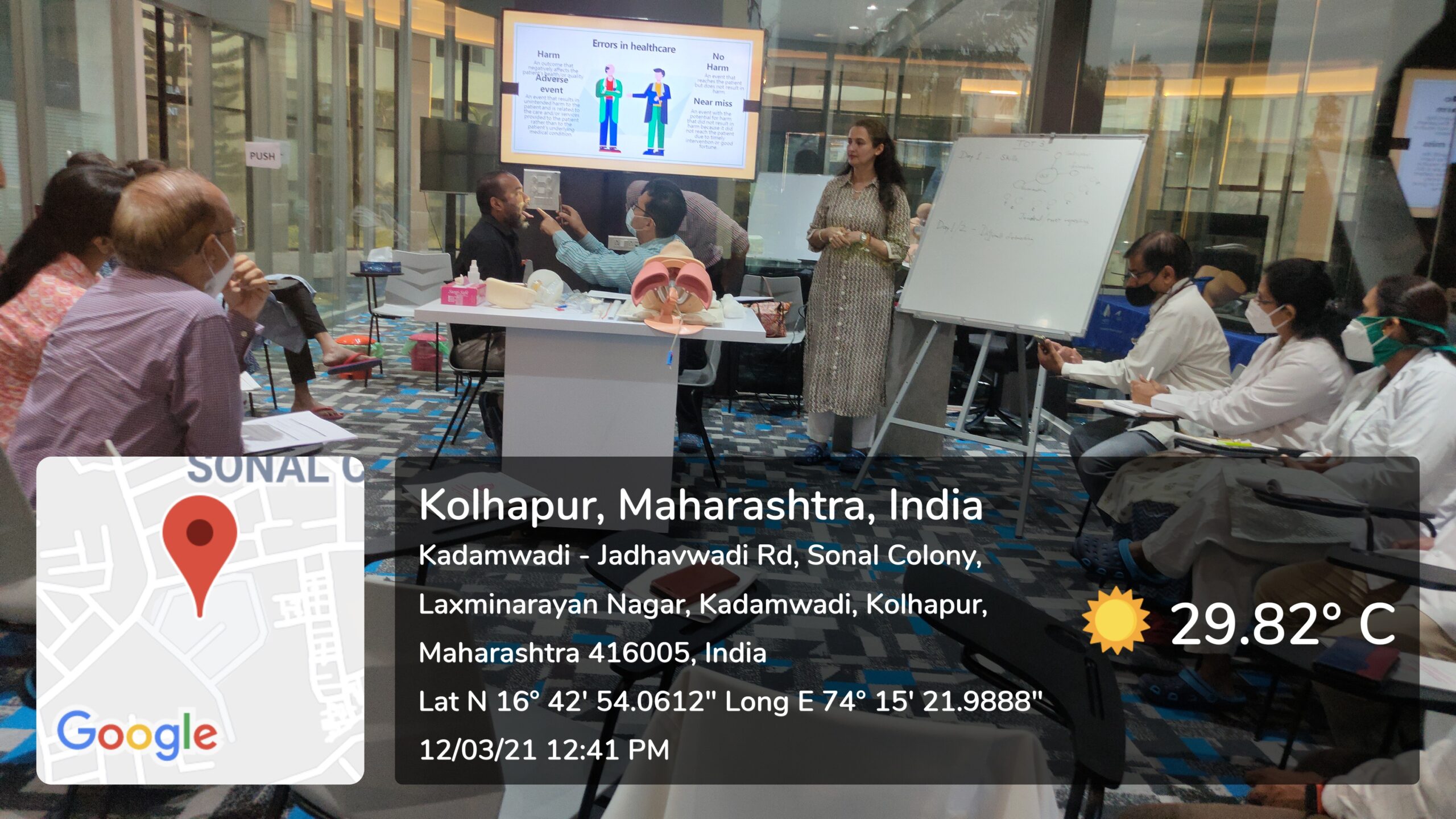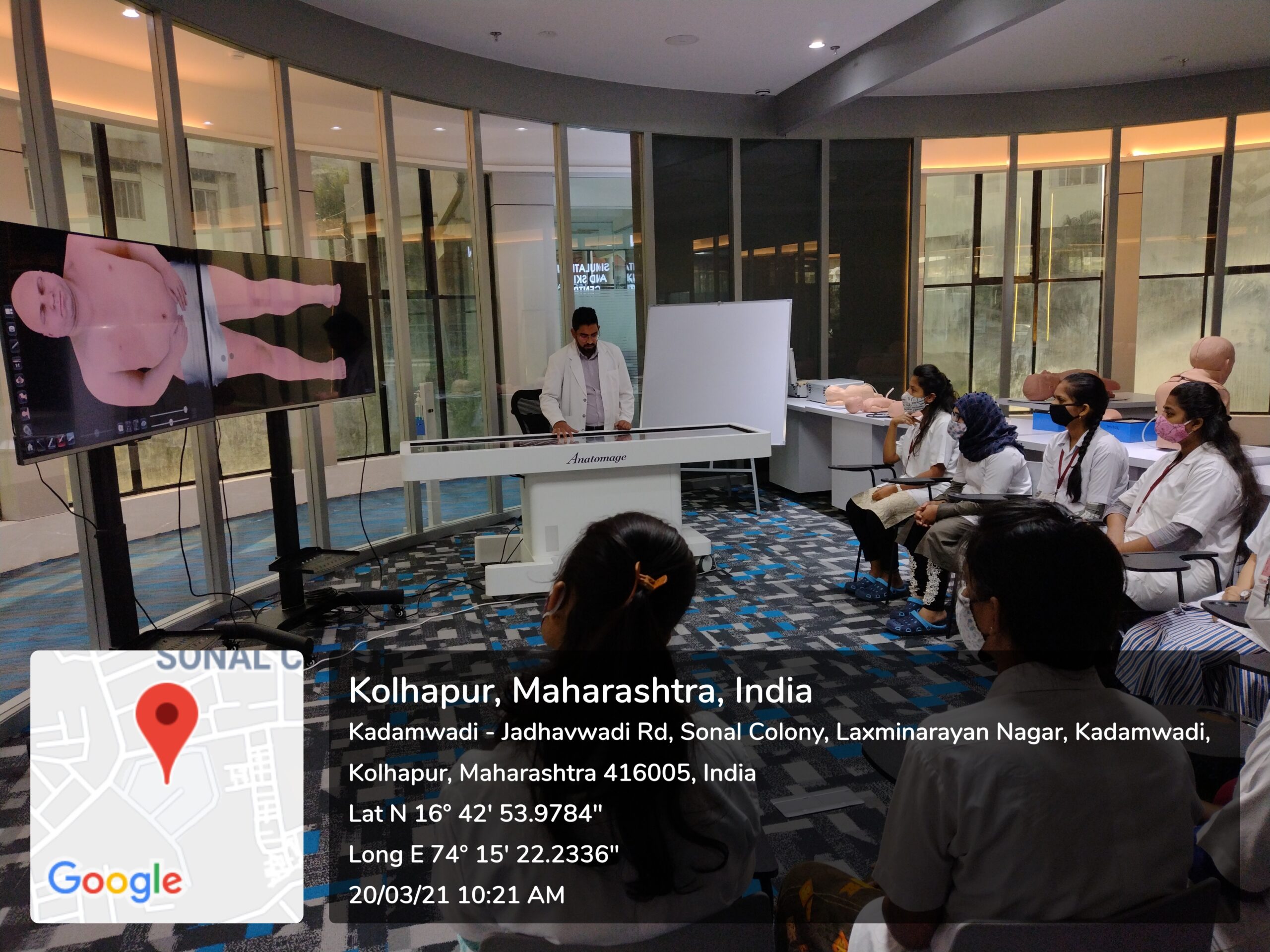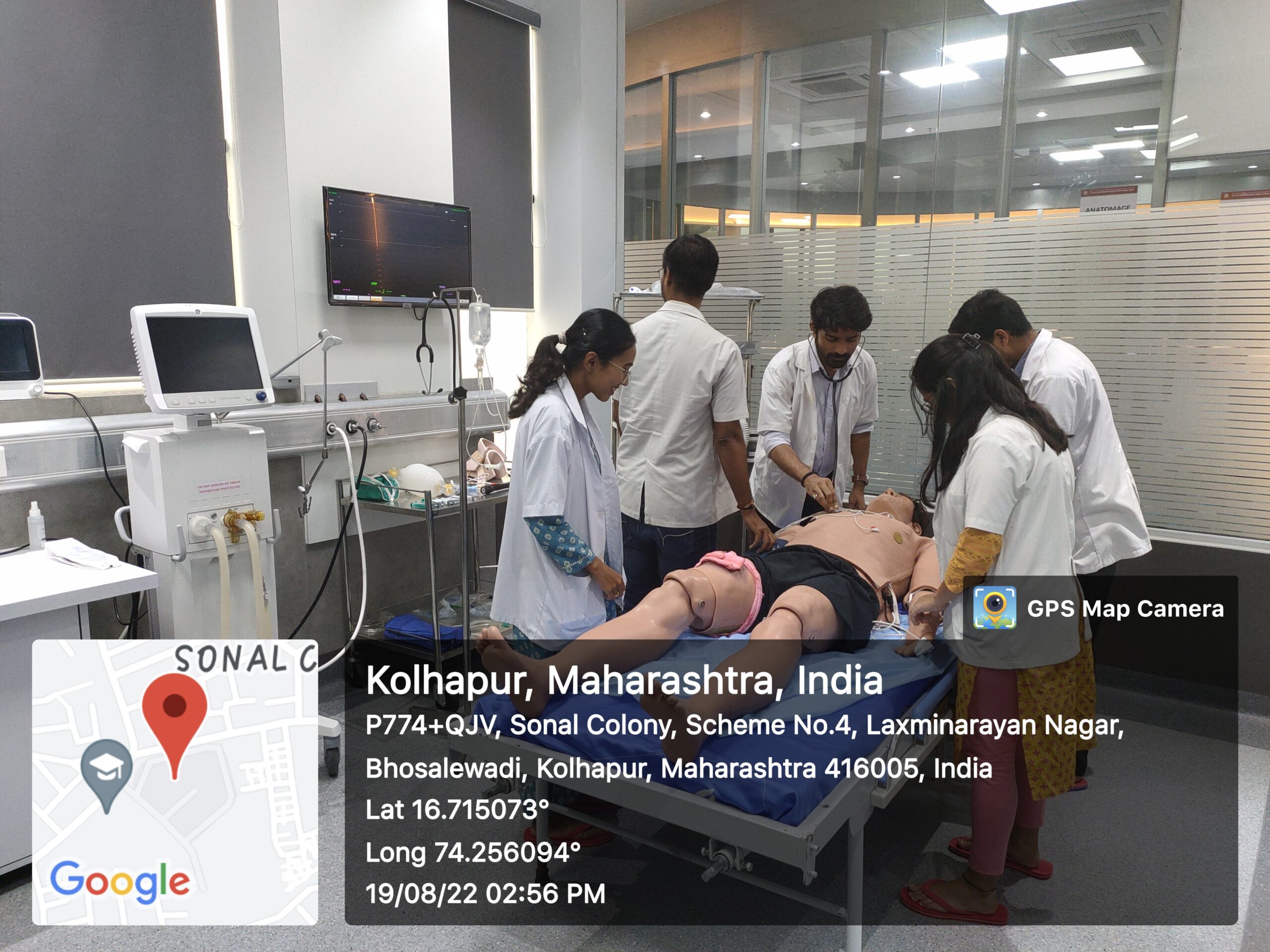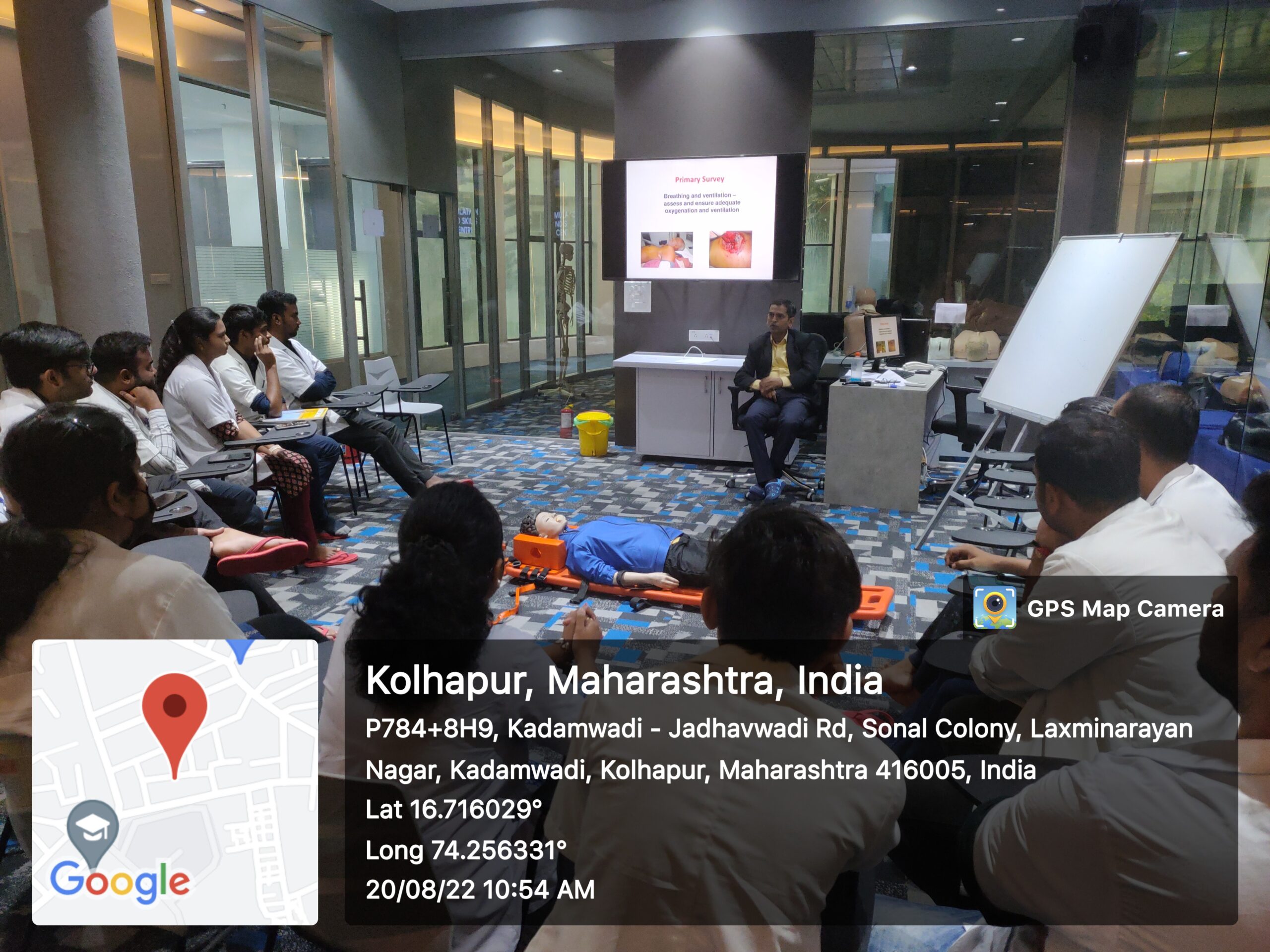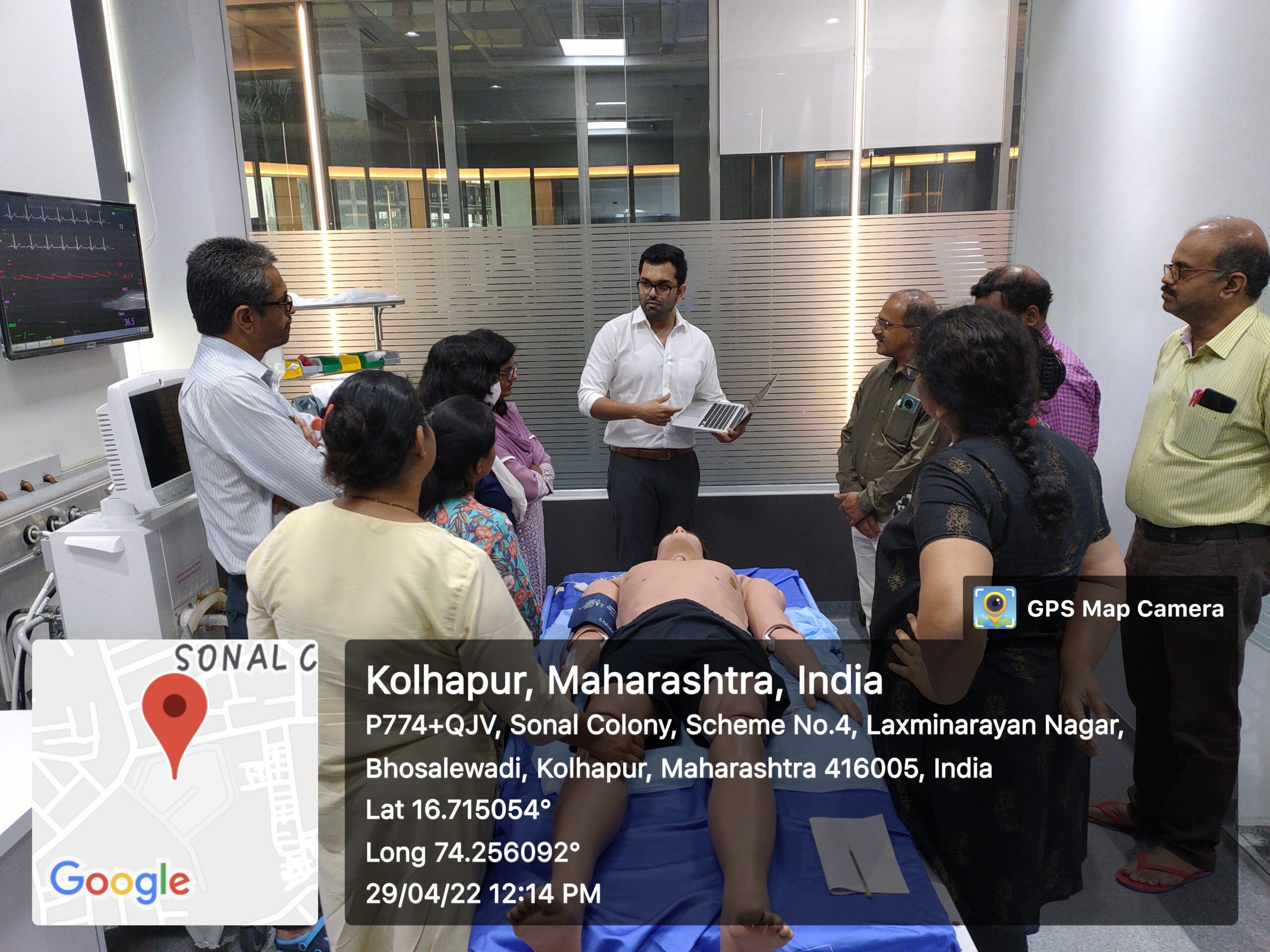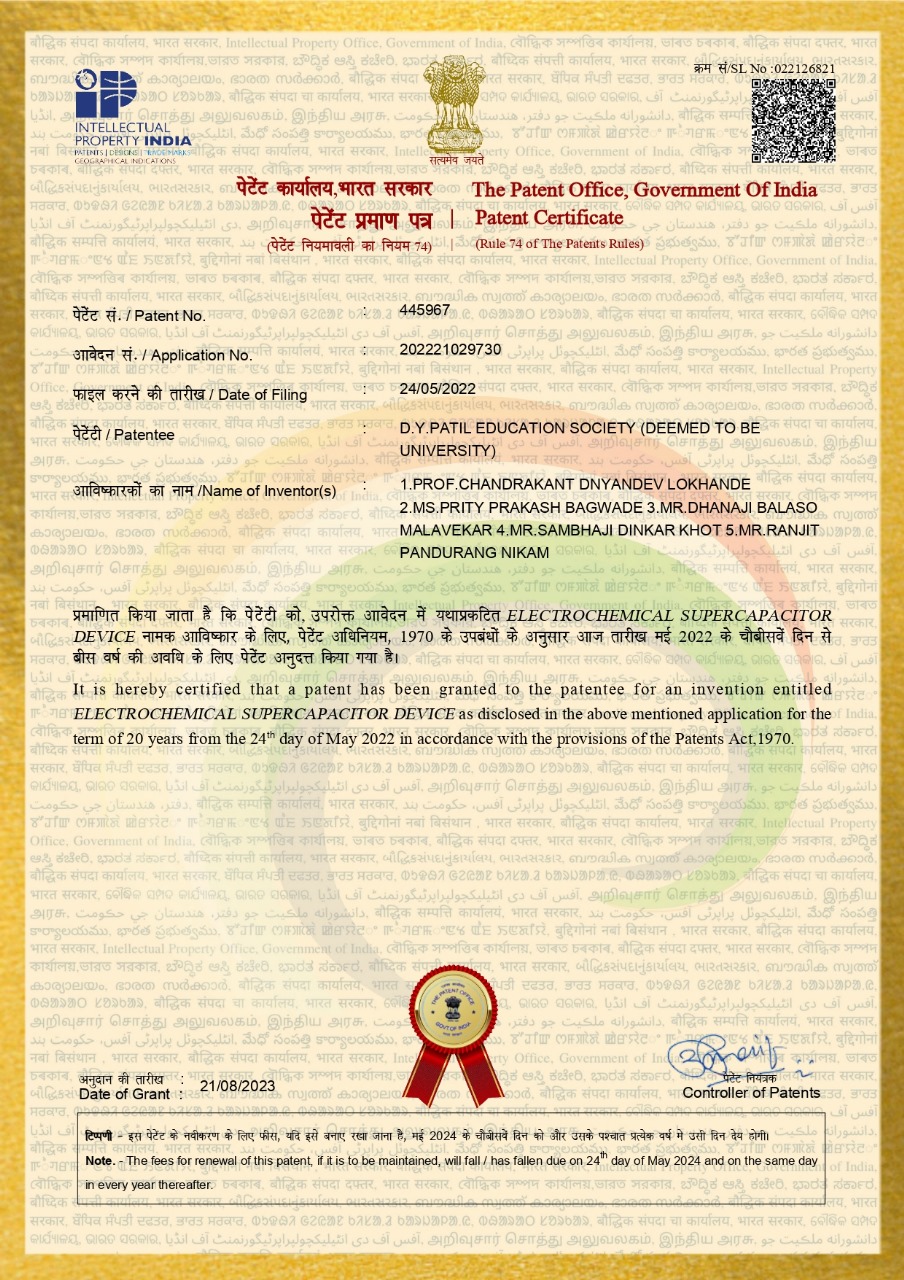- Title of Practice:
- Integration of Simulation-based training in curriculum
- Objectives of Practice:
- Enhance and optimize student training to make them practice-ready or industry-ready.
- Use latest simulation-based techniques to ensure skill training of students to meet global standards
- Train faculty in newer technique of simulation-based training to foster near-experiential learning for students.
- The Context:
- Practice-readiness and patient safety are two concepts in global healthcare that gain increasing importance every day. The emphasis on skill-based training of graduates in the Quality Mandate of the UGC as well as in the new National Education Policy 2020 underline a major area of focus for educators and educational institutions. DYPES is cognizant of these developments and has taken prompt steps to fulfil the expectations of all stakeholders
- Simulation-based training is a proven, evidence-based system of ensuring that graduates acquire basic and advanced skills in a safe learning environment with opportunities to relearn as per need. Software and Hardware advances allow a high degree of life-like, high-fidelity experiences that can be recorded, assessed, and reviewed to provide students with the required learning experience.
- DYPES inaugurated a state-of-the art Simulation and Skill Center on 22nd October 2020 on the birthday of the Founder President, Dr D Y Patil (Padmashri Awardee).
- The Practice
- Setting up of the SSC: Visits to other centers in India was followed by identification of desired simulators, decisions on logistic requirements, and creation of infrastructure suited for the same. Support of all management and administration was essential, and generously given.
- Staffing the SSC: Appointment of trained and experienced staff who would take responsibility for the optimal utilization of the center and various simulators was considered key to its’ success. This was achieved with appointment of one Centre Head and three Operation & Technical Executive. This has allowed for smooth scheduling of training workshops, conscientious record keeping, high standard of maintenance and upkeep and optimal utilization of the equipment.
- Identification of Resource Faculty: Invitations were extended to external resource persons who were themselves experienced Faculty at other centers and were trained at prestigious flagship centers like the Mayo Clinic. Total of 157 training days by expert faculty benefited 1589 stakeholders.
- Train the Trainers:: Initiating the training at SSC with Faculty Development Program (FDP) in Simulation Based Education (SBE) for 15 distinguished faculties from medical college and nursing college in phased manner for 3 workshops strategically spaced throughout this phase, gave an edge, and helped faculty sink in the concept easily with several practice sessions in-between. It allowed for smooth transition in teaching of some skills that were hitherto taught on models, low-fidelity simulators or in the traditional apprenticeship model. Faculty from university conducted 399 training workshops and 4807 practice workshops in the SSC till August 2022
- Phased introduction and training in essential skills: BLS, ACLS, ATLS, NRP, Adverse events following immunization (AEFI) were conducted initially followed by training on patient simulators. Later on surgical simulators were used for endoscopy and laparoscopy training followed by ultrasound training. Anatomage trainings were also conducted in this phase.
- Serving a felt need:Keeping in mind the intense focus on communication skills and soft skills in terms of interaction with stakeholders, the Communication Skill laboratory was set up by the IQAC within the ambit of the SSC.
- Institutionalization of SSC: All constituent units of the university benefited from the SSC. Students from all levels viz. PG, Interns, UG, Faculty and different disciplines like Nursing, Physiotherapy, and Medical as well as non-teaching staff were trained. The SSC trainings (BLS) are part of the Orientation (Induction) sessions of all programs
- Feedback processes: Regular online feedback is taken from attendees of the various workshops with regular analysis being done to ensure that any potential scope for improvement is used.
- Certification: The need to certify the persons who completed specified training was felt and certificates were presented to those who fulfilled the requirements or assessment standards.
- Evidence of Success
- Optimal Utilization of Trainers & Simulators:
- The utilization of the simulators exceeded expectations. The SSC was awarded the ‘Fastest Growing Simulation Lab’ by CAE, India later in the year. Use of Learning Space state of the art software for pre-post test assessment, and reflective learning.
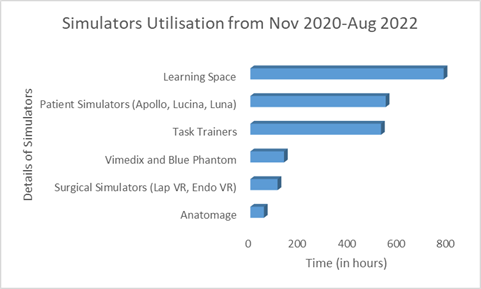
- Output in terms of Workshops Organized
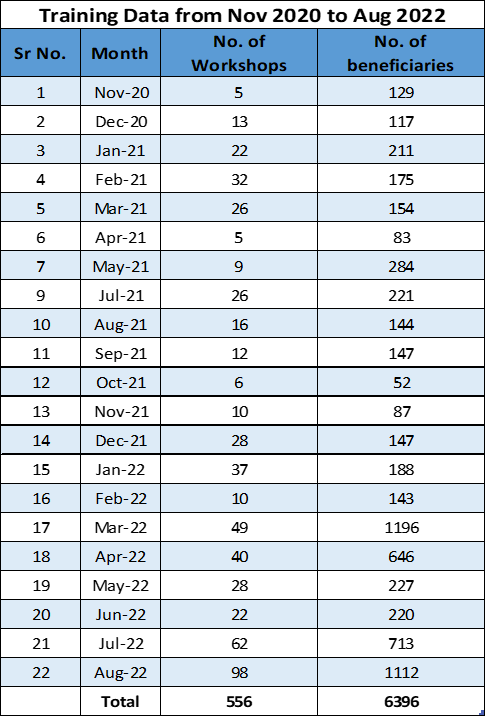 SSC conducted 556 workshops benefitting 6396 participants.
SSC conducted 556 workshops benefitting 6396 participants.
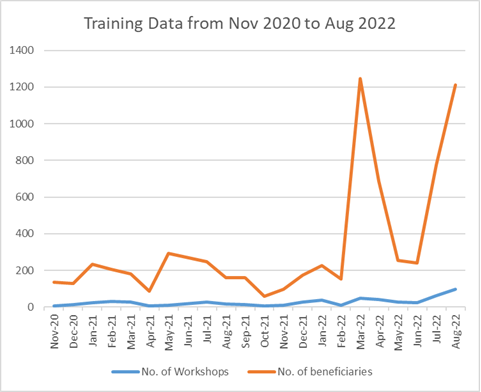
- Beneficiaries of the workshops The use of SSC for training and education has been institutionalized and is a part of the orientation program of new admissions in all health science programs.
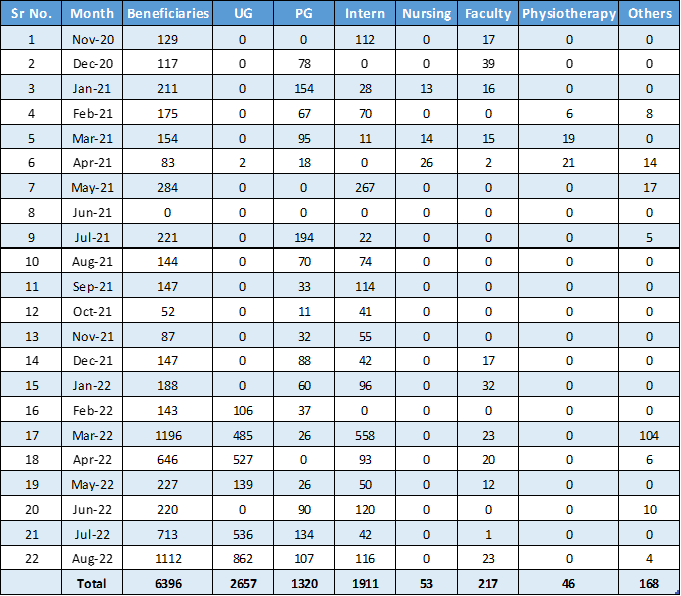
- Faculty Development Program
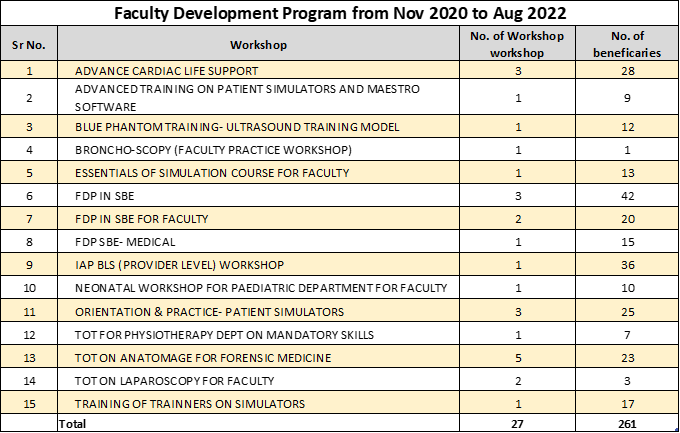
- Research work generated
- 4 posters presented by PG students at the National Conference were conducted at the SSC, manuscripts for publication are in process
- Academic Offerings to students covered multiple requisite skills
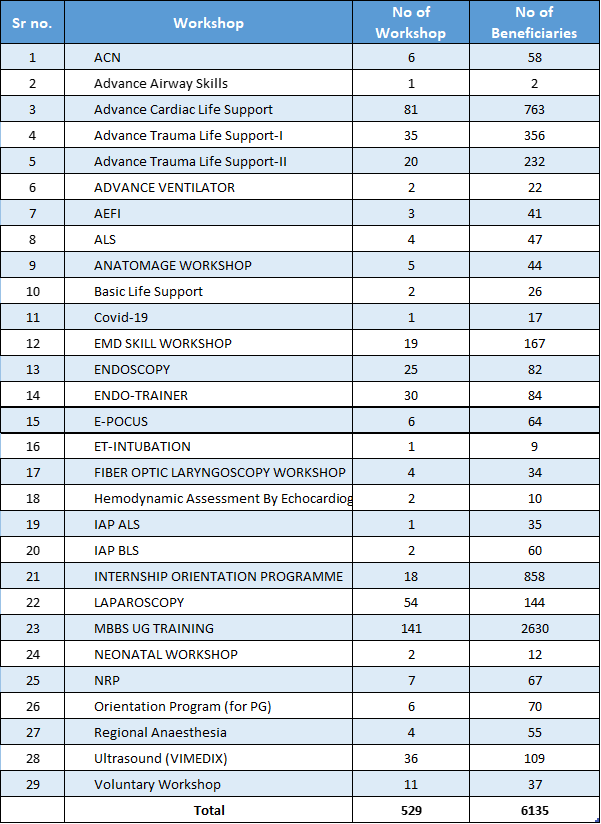
- Contributions to Academic Upskilling of teachers Research projects of 3 faculty undergoing the Advance Course in Medical Education offered by the National Medical Commission, New Delhi were based on simulation techniques in education.
- Satisfaction of Stakeholders
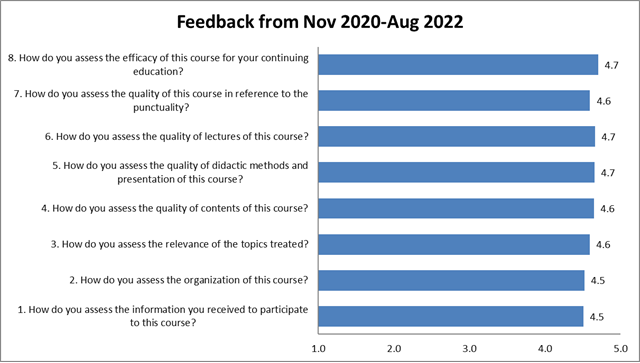
1.0= Poor 2.0=Mediocre 3.0=Satisfying 4.0=Good 5.0= Excellent - Achievement of learning outcomes. Feedback from constituent unit heads, colleagues, peers and teachers was gathered after workshops regarding students’ levels of skills and confidence in handling complex medical scenarios. A positive feedback was received across the board from all interviewees. Their suggestions were incorporated into further improvements in workshops scheduling and execution
- The utilization of the simulators exceeded expectations. The SSC was awarded the ‘Fastest Growing Simulation Lab’ by CAE, India later in the year. Use of Learning Space state of the art software for pre-post test assessment, and reflective learning.
- Optimal Utilization of Trainers & Simulators:
- Problems Encountered and Resources Required
No Problem Encountered Resources Required 1 Learning simulation-based teaching needs a lot of unlearning and relearning for faculty Repeated training, practice workshops, observer ship and excellent trainers, reading resources like books, are available to go through in SSC. 2 Scheduling of workshops to integrate with pandemic restrictions Core team for decision-making, small group discussions, flexibility, adaptability. 3 Scheduling of workshops to integrate with academic calendar and work duties of PG Core team for decision-making, small group discussions, discussions with HODs and Intern-Coordinator, Fellowship-Coordinator, flexibility, adaptability. 4 Enforcing behavior rules within SSC to ensure equipment safety Training of faculty and students, handholding in initial stages, provision of gloves 5 Need for accurate and exhaustive record-keeping Use of technology and IT support
Notes:
- Faculty participation was positive and enthusiastic. This made the initiation easier.
- Future plans: integration of lab in elective postings for UG and PG training.
- Interdisciplinary collaboration increased with the joint faculty trainings.
- Scheduling of training in synchrony with the curriculum and integration of the two needs- planning and innovativeness.
- Visitors to the SSC have been highly appreciative of the facilities. They range from Professors, Vice Chancellors, Chancellors and Senior Academicians and Administrative Officers from private and Governmental institutions.
